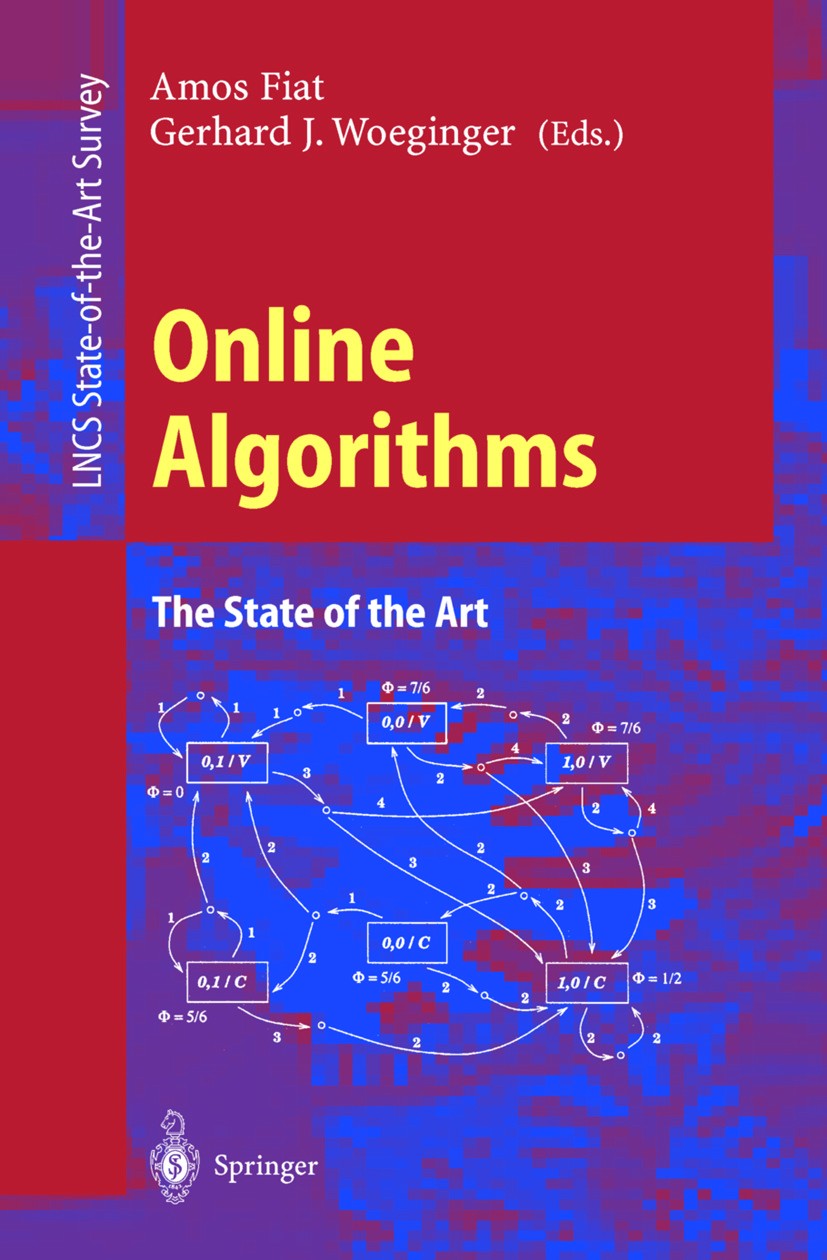| 书目名称 | Online Algorithms |
| 副标题 | The State of the Art |
| 编辑 | Amos Fiat,Gerhard J. Woeginger |
| 视频video | http://file.papertrans.cn/702/701502/701502.mp4 |
| 丛书名称 | Lecture Notes in Computer Science |
| 图书封面 |  |
| 描述 | This coherent anthology presents the state of the art in the booming area of online algorithms and competitive analysis of such algorithms. The 17 papers are carefully revised and thoroughly improved versions of presentations given first during a Dagstuhl seminar in 1996..An overview by the volume editors introduces the area to the reader. The technical chapters are devoted to foundational and methodological issues for the design and analysis of various classes of online algorithms as well as to the detailed evaluation of algorithms for various activities in online processing, ranging from load balancing and scheduling to networking and financial problems. An outlook by the volume editors and a bibliography listing more than 750 references complete the work..The book is ideally suited for advanced courses and self-study in online algorithms. It is indispensable reading for researchers and professionals active in the area. |
| 出版日期 | Book 1998 |
| 关键词 | Distributed Algorithms; Online Load Balancing; Online Navigation; Online Network Routing; Online Schedul |
| 版次 | 1 |
| doi | https://doi.org/10.1007/BFb0029561 |
| isbn_softcover | 978-3-540-64917-5 |
| isbn_ebook | 978-3-540-68311-7Series ISSN 0302-9743 Series E-ISSN 1611-3349 |
| issn_series | 0302-9743 |
| copyright | Springer-Verlag Berlin Heidelberg 1998 |
 |Archiver|手机版|小黑屋|
派博传思国际
( 京公网安备110108008328)
GMT+8, 2025-12-27 06:35
|Archiver|手机版|小黑屋|
派博传思国际
( 京公网安备110108008328)
GMT+8, 2025-12-27 06:35


